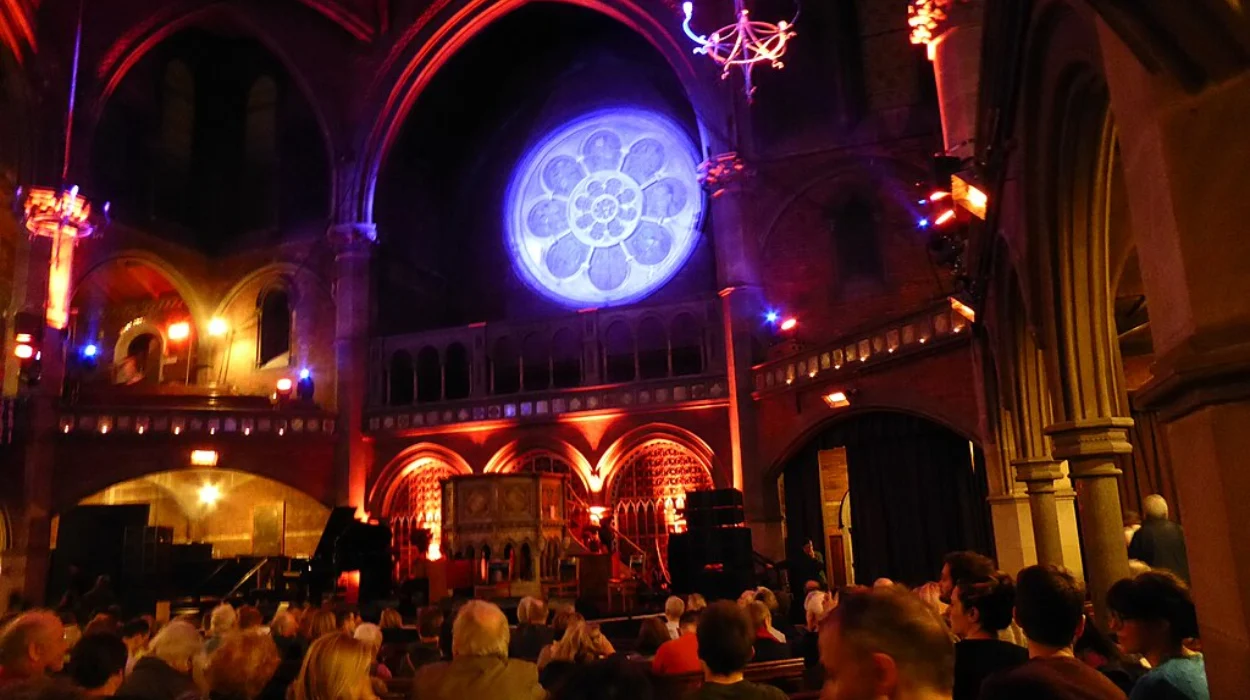Islington (Parliament Politics Magazine) – Islington’s Union Chapel archive is inspiring a new generation through its ‘Sunday School Stories’ project, preserving community history and creativity.
With its 200-year archive, Union Chapel, one of London‘s most treasured heritage, live music, and arts venues, is starting an ambitious program of cross-arts workshops and performances that engage young people.
Students in Islington are encouraged to investigate issues of protest, suffrage, education, and poverty through practical creative activities from late 2025 to February 2026. These activities will turn archival discoveries into live performances. The seminars are a part of Union Chapel’s ongoing Sunday School Stories initiative, which aims to inspire all generations through the church’s enduring legacy of social justice, music, culture, and community assistance by bringing its 200+ year archive and local history to life.
In a new series of creative workshops that explore art, tradition, and protest, young voices take center stage. Young people are invited by Union Chapel and the Estorick Collection to create impactful modern protest posters by drawing inspiration from Islington’s radical past and more than 200 years of social justice history.
Free workshops of artistic experimentation and critical thought will be inspired by the archive research conducted by Union Chapel’s History Detective volunteers. Topics will include feminist voices, Pride history, and black music and art.
Together with newly made student posters for Pride Month 2025, the artwork will be on display at Union Chapel’s Your Story Festival of Social Change 2026. Students in Years 9 through 13 are welcome to attend sessions, which will take place at the Estorick Collection between November 2025 and March 2026.
Up to February 2026, Union Chapel will also engage with musicians ages 14 to 18 on immersive music workshops in partnership with Highbury Opera Theatre and MEI-Guildhall School. Mrs. H Sings, a family act, will work with Year 2 pupils. Inspired by Union Chapel’s history of promoting activism, equality, and education, participants will collaborate to produce performances that incorporate spoken word, beats, soundscapes, and song. February 2026 is the date of these free performances. Details about the free tickets will be revealed soon.
The Highbury Opera Theatre and MEI-Guildhall School October–February workshops and performances are open to musicians aged 14–18. Applications must be submitted by October 17.
Cristina Carrasco, Participation Manager of the Sunday School Stories Project, says,
“Union Chapel has always stood for the belief that heritage is not something locked in the past, but something living, breathing, and inspiring for new generations. Sunday School Stories brings that to life in the most creative ways possible.”
Mrs H Sings says,
“Having performed in the borough for over 20 years, it is a joy to be back and celebrating the Union Chapel. So far, our work has been to engage with local school children, to help write material for our one-off show in February. It has been such a joy to have an opportunity to write new material, and the songs are already being played and learnt in our weekly sessions. The culmination of all this is will be a theatrical show in the main chapel that will be such an exciting prospect for the band to realise. We can’t wait!”
With support from The National Lottery Heritage Fund, National Lottery Players, and other partners, the Sunday School Stories Project will increase the scope of its partnerships, events, and activities, bringing more than 200 years of local history to the public’s attention and encouraging its youth to use the arts to tell these lost tales.
How does Union Chapel preserve its historical architecture?
Union Chapel is committed to maintaining its historic architecture through a steady and managed programme of restoration, adaptive reuse and community engagement. The latest intervention – a major restoration of its Grade II* listed Sunday School will protect the building’s distinctive Victorian features and structural integrity.
The restoration will carry out urgent repairs and future conservation through use of traditional materials and construction methods, but with some environmental and accessibility improvements for wider community use.
This includes expert repair and conservation of distinctive features such as the its three-sided wrought iron balcony, study booths and Victorian brickwork, all of which are important in terms of the building’s heritage and function.


